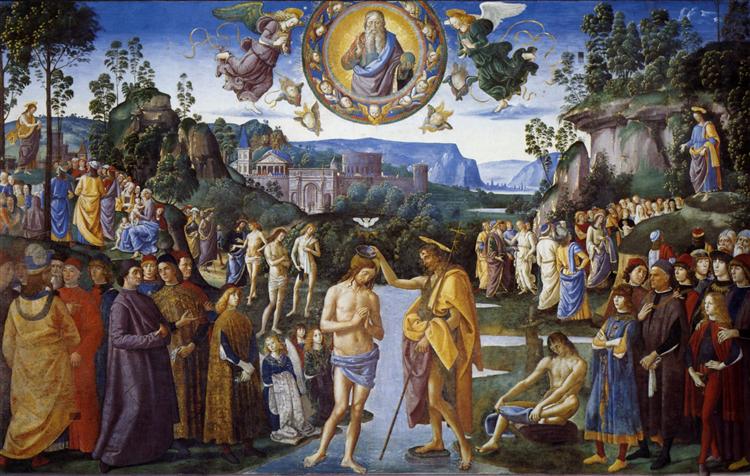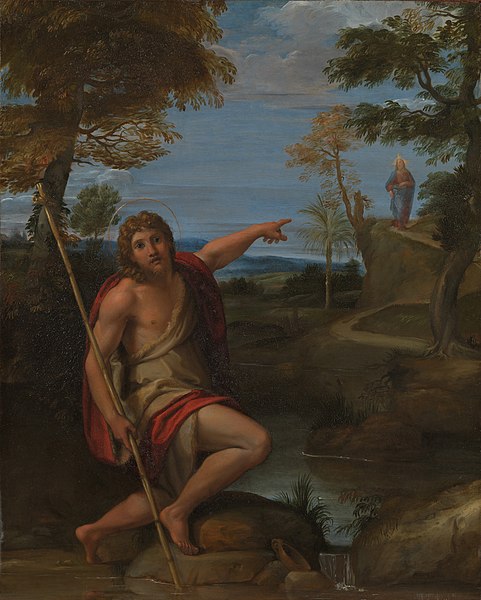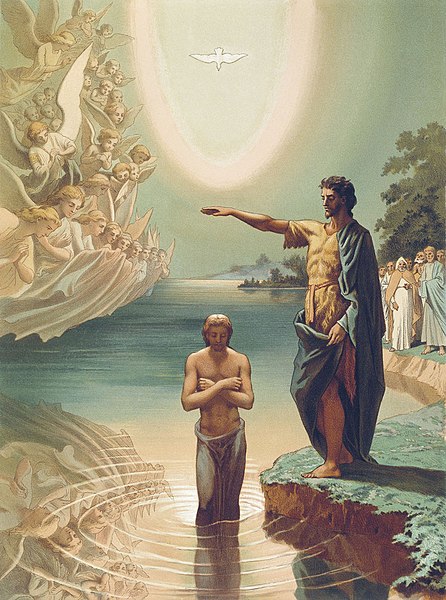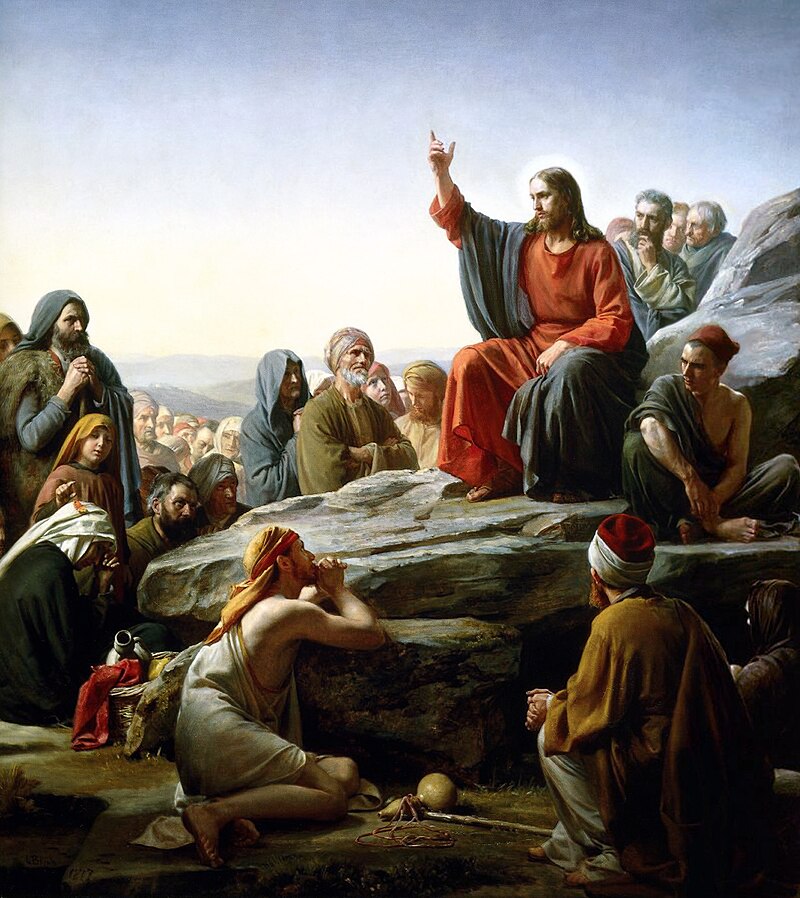 |
| Sermon on the Mount, Carl Heinrich Bloch 1877 |
While I cannot say it is the largest inaugural address ever given -based on the information we have at our immediate disposal-
the data seems to affirm that it was a pretty substantial crowd.
The data provided in Matthew’s gospel would not only suggest that the crowd was substantial in size but by the time we get to chapter seven the crowd had grown even larger.
Then, as the real work begins in chapter eight, the crowds had grown even more, and they followed him wherever he went, in awe of the works he did.
And his work was not focused on healthcare, jobs, immigration, or the environment,
-At least not exclusively-
But completely turning the entire infrastructure of God’s creation on its ear.
An infrastructure that had begun eroding and rotting a long, long time ago.
Not because of the Republicans, the Democrats, the bankers, or CEOs.
Not because of the Romans or the Pharisees.
But because the whole system had gone awry.
Not at the hands of any single person, but by the hands of every living person, to include our own today.
Jesus’ inaugural address, the Sermon on the Mount, is not only one of the most well known of Jesus’ teachings, but it is the longest collection of his teachings.
They get right to the heart of Jesus' mission, God’s mission.
And in Matthew, they serve the purpose of laying out the entire mission before, not only the disciples, the people of Galilee, or the people of Israel, but Jesus’ disciples around the world, in every time and place.
This collection of nine blessings, bestow more than just a blessing, but a title that is bestowed upon the hearer; a judgement that is rendered by Jesus, declaring such a title as….blessed.
It’s a very different title than the one we use today, far more formal than a response to a sneeze or a more spiritual form of wishing good will on another who has graciously held the door.
This is a title, an honor bestowed to those who have, will, and are presently in the act of participating in the will of God.
This portion of the Sermon on the Mount has been described as the most masterful collection of wisdom literature to ever draw ink to paper.
Philosophers, priests, and spiritual leaders of all sorts have described it as one of the most beautiful sermons ever written.
Mahatma Gandhi, the Indian leader and activist even claimed its special place in his own life as a Hindu and revered figure in world history.
So, how on earth could I improve on such a thing today?
In all honesty, I won’t because I can’t.
In fact, preaching is not an art of improving on Christ’s Word. It is the art of inviting you to immerse yourself into those words.
And that is the very point of this text as an introduction into Jesus’ ministry.
It is to pull you into the poetry of the Beatitudes and to be lost in those words.
That is the power of the inspired word of God, to invite us into the impossible task, the task of not only living into those words, but wrestling with them.
This is not the first time words are presented to the people directly from God.
And Matthew draws some specific parallels there.
In Exodus 19, Moses climbs up the mountain to receive the word of God, being called there by God.
 |
| Moses Receives the Ten Commandments from Yahweh Cosimo Rosselli, 1480 |
Moses serves as the messenger of that word, the singular solitary messenger and authority of that word.
But it isn’t a singular figure who is called to the mountain this time.
Jesus is the one waiting atop the mountain, and it is the disciples who climb it to hear the Word made flesh, face to face.
But there is debate concerning the size of the crowd that hears Jesus’ inaugural address.
And it depends on the source of your information to be honest.
I’m not saying that certain perspectives are wrong or intentionally misleading, although exact numbers cannot be cited, but it may be important to note a simple fact.
As the word is bestowed upon the disciples, it would certainly seem that his circle of listeners grew as the crowd below is drawn up that mountain to receive this word, not a word imprinted on stone tablets, but a word that is etched on the hearts of all the disciples who hear them.
Not just to the crowd gathered together then, but to the one gathered together today as well.
The Beatitudes hold a special place in the Gospels, because they reflect the influence of Judaism on Matthew.
They are Jewish poetry that can be described as both law and gospel.
They are often interpreted as imperative orders, commands even, and yet, they are also often interpreted as healing words of grace and mercy.
Oddly, this poetry stands as both.
And regardless of how you read them, they are intended to lead us to the same conclusion,.
They lead us to the total upheaval of our accepted natural order.
A natural order plagued by injustice, despair, arrogance, grief, war, pain, and persecution.
Blights on their lives and ours that were never meant to be part of this creation, part of our lives.
As I have already stated this text is more than a story, a speech, or a proclamation.
It is poetry and a riddle of the heart rather than the mind.
 |
| The Eight Beatitudes, Cosimo Rosselli 1480 |
Versus 3 through 9 make a declaration of what the kingdom of God WILL be.
So when you see this as an impossible vision, don’t feel alone, because it is.
It is a vision beyond our reach, well beyond our cognitive grasp.
Because we cannot envision a world where the roles of the meek and the mighty are reversed.
And perhaps we don’t always like that vision, because after all, we fall pretty high on the pecking order compared to most places in the world, don’t we?
But certainly we find ourselves in one of these nine categories, at some point in our lives, if not daily.
So maybe we should ask ourselves, "What would that look like? Are those the people that we truly want to share an eternal kingdom with?"
Because these are not just titles bestowed on those who KNOW God but those who NEED God the most.
How could we not find ourselves envious of that?!
Especially if THOSE who NEED God more than they KNOW God, find themselves at the front of the line!
How many of us would declare THAT fair or just?!
I must confess, NOT I!
After all, I’m a called and ordained minister of the church of God, aren’t I?
Shouldn’t I be at the FRONT of the line!!!?
Perhaps…. If it were my vision of the Kingdom, my vision of justice.
But it is not, thankfully.
It is God’s.
It is God’s.
And is our place in line what matters the most, or the fact that we should be satisfied receiving the invitation at all?!?
An invitation to live into something fuller, more powerful, more hopeful; God’s vision of the Kingdom.
~
I have to admit I’ve found the past several weeks leading up to this Sunday’s text concerning and most certainly difficult.
I once thought that due to my diverse experiences I had the most eclectic circle of friends, certainly a diverse collection in social media.
But as people have become further and further divided, it would seem that more and more social circles have come to mirror my own.
The divisions in our immediate communities have expanded.
And as I was working my way through the text this week, I couldn’t help but realize the irony of the text and the tragedy of who we, God’s people, have become.
“Blessed are those who are persecuted for the sake of righteousness because theirs IS the Kingdom of Heaven!”
“Blessed are you when others make you an object of their scorn, persecution, and mockery, when they speak every evil against you through lies for my sake!”
I’m sure many of us have felt scorned over these past few weeks and months, perhaps even years.
And certainly it has become a bit more tense since the election and the other inaugural address we recently heard.
But we have to ask ourselves a simple question.
Who are the persecuted who we have been defending passionately over the past several months,
several years,
several decades…?
Is it those who are truly the weakest?
If we ran to the defense of those who are truly our poorest, persecuted, those who hunger for justice, and the one’s who cry out for mercy with that same passion and fervor with which we run to the defense of our nation's presidents *both past AND present*, congressmen, senators, mayors, governors, and political parties…..
What would it look like if we defended the weak with the same passion that we attack one another’s views and candidates, sometimes even severing relationships with those we care for in favor of a candidate we don’t really even know, DO WE?
What would that look like?
Sisters and brothers, one thing that we may be slowly realizing in the midst of these divisions, is that the most powerful are not necessarily the ones who need our defending.
It doesn’t mean that we do not remember them in our prayers or provide our support to those who lead and guide our nation, but are they the ones that we are called to defend so emotionally and passionately, at the expense of our own immediate relationships?
The beatitudes call us to a vision of a kingdom in which this entire system we know has been overthrown.
A system where we care for one another with an even greater passion than that in which we defend our own political loyalties.
A new natural order, in which Christ’s mercy reigns supreme.
A new Kingdom that breaks into our world through that symbol of earthly power, carried on the frail back of a broken human body that shatters the power of this world, armed with NOTHING, but the redeeming love and grace of God.
Amen
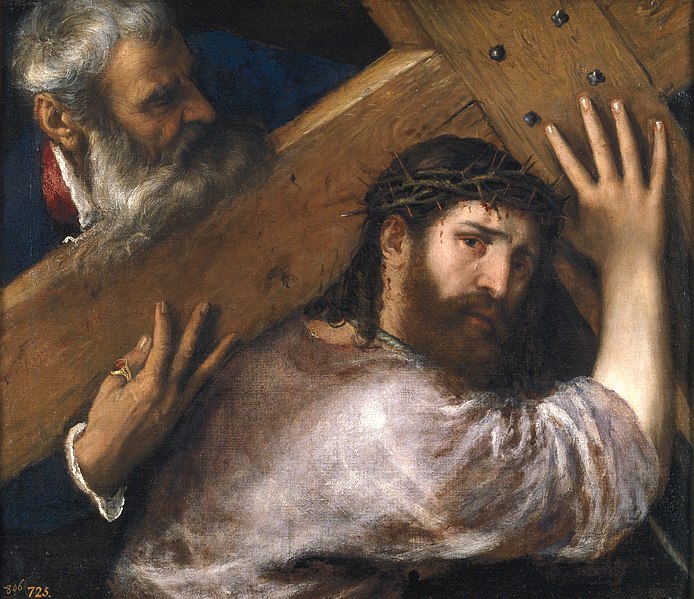 |
| Christ Carrying the Cross, Titian 1565 |
